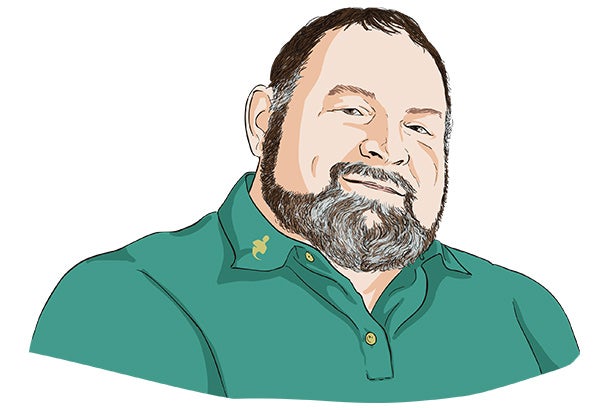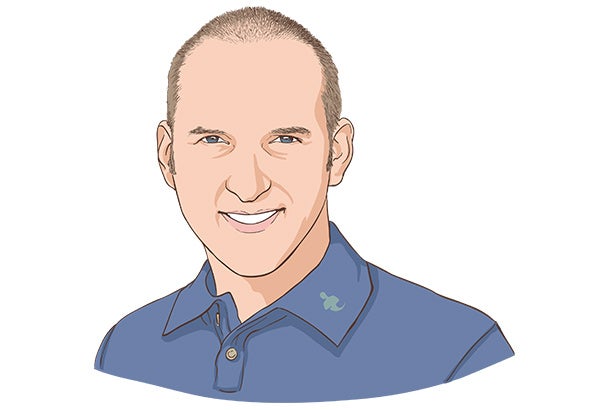10 Beliefs These Moguls Use to Win Big
These entrepreneurs and executives succeed where others don’t by thinking differently from the competition.

Conventional wisdom too often yields conventional results. These entrepreneurs succeed where others don’t because they hold some unusual beliefs that create massive results for their businesses.
Learn from their ideas below to make your own venture a success.
1. Fun should come first.

Life is too damn short to work so hard only to find out in the 11th inning that you didn’t have enough fun. I built a hugely successful real-estate business full of productive people because everyone knew it was the happiest company in town and we all wanted to be there. For every dollar I spent creating fun, I got a 1,000 percent return. When I sold the The Corcoran Group for $66 million, I was surprised that all of our fun expenses totaled only .04 percent of total expenses. Based on what it bought us, I thought for sure it was more like 50 percent. —Barbara Corcoran, founder of The Corcoran Group and Shark on Shark Tank
2. Be obsessed.

You have to be obsessed. You have to be all in, all the time. So obsessed you lose the concept of time. The greatest people who have walked this Earth are those who are obsessed. They don’t drink the Kool-Aid, they swim in it and do a backstroke in the Kool-Aid. —Grant Cardone, top sales expert who has built a $500 million real-estate empire, NYT bestselling author of Be Obsessed or Be Average, and host of The Cardone Zone; follow Grant on Facebook or YouTube
3. Clear the small stuff so you can focus on what’s important.

I love the discipline of waking up early on a Sunday morning to clean my office and car. There’s a magic in tidying up. In the construction business, we say get dirty and “jump in the hole.” I vacuum everything and take out the trash. It creates momentum, keeps my ego in check and reminds me of where I came from. Discipline with the small things frees my mind to tackle the big things during the week. It also sharpens a “get it done, no excuses” attitude. —Steve Griggs, founder and CEO of Steve Griggs Design
4. Train staff to leave your company.

When I hire people, I explain to them that we are training them to be able to leave. It lowers our turnover considerably. We tell new hires right at the start that ListenTrust is a stepping stone to the career they dream of—and that if our job is done correctly, we work for them, they don’t work for ListenTrust. We ask about their dreams and goals, then we explain how our training will be a foundation to achieve them. If I try to motivate them through my dream of the highest-quality call centers, it’s never going to be as successful as teaching them how to be awesome at their job as a way to achieve their dreams. —Craig Handley, co-founder and CEO of ListenTrust
5. Fail as fast as possible.

In our businesses, we prefer to fail fast and learn from it quickly to make improvements rapidly. Things are not always going to go according to plan, so the faster we find that out, the faster we can make changes to correct. If you’re waiting for perfection, your competition is going to pass you by. —Gary Nealon, president of Nealon Solutions and The Rox Group
6. People are fundamentally good and hard working.

I assume that my employees want to work for my company and they want to do a great job. I treat everyone as part of a team with a greater purpose in life than just making money. My employees, in turn, trust me to do what is right and fair for them, as well as for our customers. I have always been able to get a group of people to do more than expected by treating them better than expected. —Jim Mathers, CEO of North American Energy Advisory, Inc.
7. Goals should be very specific.

I only aim for a specific target. Too many people set generic goals that aren’t specific enough. I believe that if I don’t have an exactingly specific target, then I won’t know when I’ve achieved it. Dreaming is nice, but you have to do something about the dream. —Jay Georgi, founder of Nadvia and operations / management / profits-retention coach
8. Intuition is a muscle that needs exercise.

Intuition is not only a gift but also a skill that can and must be trained. Intuition is regularly mistaken for emotion, which may be volatile, unpredictable and reactive. However, I view intuition as the subtle and unexplainable, yet highly valuable, information that I glean from a collection of observations and sensations. I believe intuition is most accessible when one is prepared, calm and grounded on the inside, and armed to face chaos in the outside world. —Nafise Nina Hodjat, founder and managing attorney of The SLS Firm
9. Investors don’t care about returns more than your mission.

You’ll experience greater success and raise more capital when you focus your pitch on solving social problems, rather than telling investors how you will provide them with a large return on investment. My health-care software startup FruitStreet.com is a public benefit corporation, which means that we are for-profit, but we wrote our social mission into the bylaws of our company. When you focus on helping society, you’ll be more successful because you are solving problems for human beings, and investors want to support that kind of mission. —Laurence Girard, founder and CEO of Fruit Street
10. Budget for your reputation.

Your online reputation is the No. 1 factor in converting a prospect to a buyer. Regardless of industry, everyone wants the best product or service at the lowest price from the most reputable provider. Most entrepreneurs invest massive effort, time and money into building the business—find the perfect location, hire the best staff, pick the right wallpaper color. But most entrepreneurs are unknowingly vulnerable to a malicious attack from a competitor, disgruntled employee, or hard-to-satisfy consumer. Without a reputation budget to protect everything they’ve built, it can crumble in days. All it can take is one negative review—true or not—that’s syndicated to dozens of websites and you’re out of business. Protect your online reputation so that never happens. —Jerome Knyszewski, CEO of HeavyShift Marketing and online reputation management expert with over 200 recommendations on LinkedIn
If you’re an experienced entrepreneur and interested in sharing your insights like those above in a future column, please get in touch here.
Want to suggest a future topic for these entrepreneurs to answer? Email suggestion@theoracles.com and it’s very possible we’ll make your suggestion the focus of a future article!
Conventional wisdom too often yields conventional results. These entrepreneurs succeed where others don’t because they hold some unusual beliefs that create massive results for their businesses.
Learn from their ideas below to make your own venture a success.
1. Fun should come first.

Life is too damn short to work so hard only to find out in the 11th inning that you didn’t have enough fun. I built a hugely successful real-estate business full of productive people because everyone knew it was the happiest company in town and we all wanted to be there. For every dollar I spent creating fun, I got a 1,000 percent return. When I sold the The Corcoran Group for $66 million, I was surprised that all of our fun expenses totaled only .04 percent of total expenses. Based on what it bought us, I thought for sure it was more like 50 percent. —Barbara Corcoran, founder of The Corcoran Group and Shark on Shark Tank





